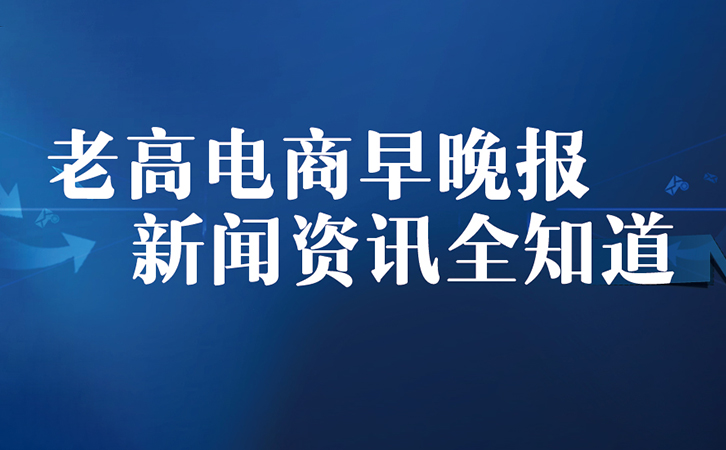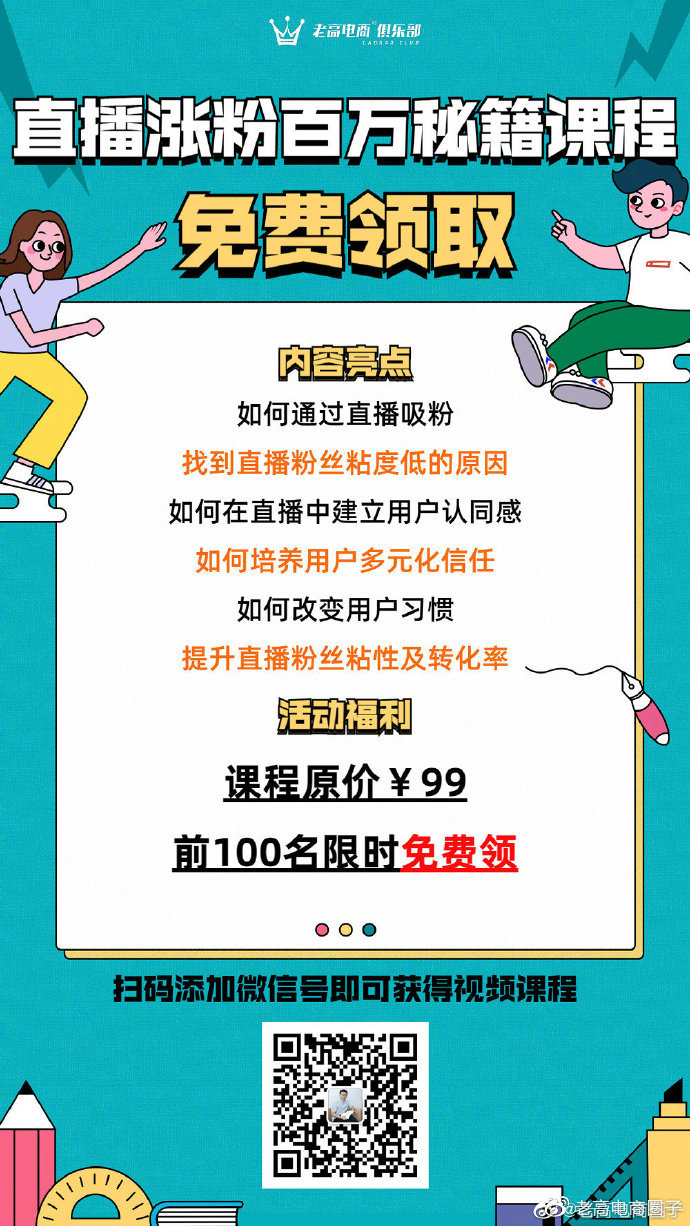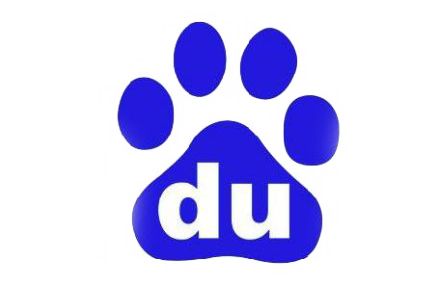According to December 5, Tmall recently issued the "Notice on the Publicity of Adding First-level Category "Packaging". Starting from December 9, 2016, Tmall will add First-level Category "Packaging" under the 3C digital category.
Learn more >
#Laogao E-commerce News# [November 7 E-commerce Evening News Brief] Big Data: Low-tier cities have become the main source of new users for Taobao and Pinduoduo; Alibaba issued a statement: Cooperating with regulatory compliance requirements to remove e-cigarette products, Tmall and Taobao have blocked keywords; Bill Gates talked about Huawei: The idea that everything from China is bad is crazy; FB exposed the scandal again: Zuckerberg used user data as a bargaining chip to attack opponents; Robin Li's internal letter: Baidu's reform has begun to show results, and he is full of confidence in 2020...

E-commerce newsletter
1. Xiaohongshu Qu Fang: The Chinese market and young people are the keywords of the future global consumer market
On November 7, the theme forum of the second China International Import Expo "New Consumption - Reshaping the Future Form of the Global Consumer Market" was held at the Shanghai National Convention and Exhibition Center. In his speech at the forum, the organizer, Qu Fang, founder of Xiaohongshu, said that he hopes that the new Internet platform represented by Xiaohongshu can create new scenarios that connect supply and demand, allow brands and consumers to establish warm relationships, and help new brands seize the wave of new consumption.
"In the past two years, we have observed two keywords of future consumption on the platform, 'Chinese market' and 'Young people'." Qu Fang pointed out, "The future of the consumer market must belong to young people." As the post-90s and post-00s who grew up in the Internet era have become the mainstream people in the global consumer market, their highly digital lifestyles and consumption habits have promoted the rise and development of new consumption and brought new opportunities to new brands. (China Economic Network)
2. It is said that Alibaba is seeking approval for listing in Hong Kong next week. Li Xiaojia: It cannot be discussed
According to the Economic News, it is rumored that Alibaba is seeking approval for listing in Hong Kong next week. Hong Kong Stock Exchange CEO Li Xiaojia only said when attending the FinTech Week that it is "can't talk about it" at the moment. Listing is Alibaba's own business and will naturally be announced at the appropriate time. He was asked about the failure of the merger and acquisition of the London Stock Exchange plan, and Li Xiaojia said that the matter was over and he should look forward. As for whether there will be other mergers and acquisitions plans, he said that the merger and acquisitions will be completed before they can be announced. (Sina Finance)
3. Big data for personal recommendation: Low-tier cities have become the main source of new users in Taobao and Pinduoduo
On November 7, the final battle of Double Eleven is approaching, and Getuo Big Data launched the "Taobao & Pinduoduo sinking market data report".
The report shows that in 2019, Pinduoduo continued to deepen its cultivation in the sinking market, while continuously expanding to high-tier cities, and the user installation penetration rate continued to increase. As of September 2019, Pinduoduo's installation penetration rate had reached 37.3%, which means that one in every 3 netizens installed Pinduoduo.
Taobao's leading position is still solid. With the already huge user base, the user installation penetration rate is still growing steadily. In September 2019, Taobao's installation penetration rate was 56.7%.
数据显示,2019年(截至9月)淘宝70.6%的新增用户、拼多多64.3%的新增用户均来自于三线及以下城市,且新增用户中三线及以下城市用户占比TGI均超过1,低线城市已成淘宝、拼多多新增用户的主要来源。(TGI,指APP新增用户中各线城市用户占比与全量人群各线城市用户占比的比值,若TGI>1,说明该线城市新增用户占比显著,且TGI越高,该线城市对APP的新增用户实际贡献越多。)
It is worth noting that Pinduoduo's new users have reached 28.9% of the users in second-tier cities. Pinduoduo is becoming popular among high-tier cities. "Help me cut" is appearing more and more frequently among the user relatives and friends groups in high-tier cities. (Titanium Media)
4. Alibaba issued a statement: Cooperate with regulatory compliance requirements to remove electronic cigarette products, Tmall and Taobao have blocked keywords
On November 7, Alibaba issued a statement on its Tmall official website, saying that it would remove e-cigarette products from now on in accordance with regulatory compliance requirements, and the announcement date was in the early morning of November 7, 2019.
Currently, searching for keywords such as e-cigarettes on Tmall and Taobao APPs shows that there are no related products and services, and some brand stores have also been closed.
On November 1, the State Administration for Market Regulation and the State Administration for Tobacco Monopoly jointly issued the "Notice on Prohibition of the Sale of Electronic Cigarettes to Minors". The notice shows that all types of market entities are required not to sell e-cigarettes to minors; e-cigarette production and sales companies or individuals are urged to close e-cigarette Internet sales websites or clients in a timely manner, e-commerce platforms are promptly closing e-cigarette stores and removing e-cigarette products in a timely manner, and e-cigarette production and sales companies or individuals are withdrawing e-cigarette advertisements published through the Internet. (New consumption of Blue Hole)
5. JPMorgan raised its target price of JD.com to $42, reiterating its rating for overweight rating on JD.com
According to news on November 7, JPMorgan Chase recently raised its target price of JD.com to US$42 and reiterated its rating for overweight holdings on JD.com. JPMorgan Chase released an analysis report saying that JD.com's stock price has risen 10% so far in the second quarter, slightly higher than the 6% increase of Alibaba and MSCI China Index. JPMorgan Chase predicts that JD.com's net profit will exceed market expectations by 30% under non-GAAP standards in the third quarter. (Titanium Media)
Internet Information
6. Retail store revenue increased to 31% of Apple's revenue in fiscal 2019
According to foreign media reports, JP Morgan's analysis of Apple's 10-K documents showed that retail stores performed better than ever in the company's sales, with Apple's total revenue increasing to 31% in fiscal 2019. Meanwhile, Apple accelerated its share buybacks in August, improving its long-term investment prospects by accelerating the share buybacks at the right time. (Tencent Technology)
7. Bill Gates talks about Huawei: The idea that everything from China is bad is crazy
On November 7, Huawei's Xinsheng Community released a video of Bill Gates' interview at the New York Times event. Bill Gates said, "Any idea that we should take action is unrealistic and bad. Like all goods and services, Huawei should also undergo objective tests whether Huawei's equipment is used for eavesdropping. It is crazy to think that everything from China to enter the United States is bad, or everything from the United States, such as aircraft engines, software, etc. are bad."
Bill Gates said that their respective innovations should be used to make the two countries fully dependent on each other. Bill Gates believes that everyone should do things according to an objective standard. When Windows products are questioned whether they contain things related to the National Security Agency (NSA), they hand over the Windows source code to the government, and then the government compares the source code with the product. "We have established openness to make them satisfied enough." Bill Gates believes that Huawei can do the same, which is something that anyone with a technical background can think of.
Bill Gates further explained: "How do you ask China to buy aircraft engines? There are all kinds of software in the aircraft engine. Do you want them to buy our high-tech products? What about Chinese employees? If you are so suspicious, if a programmer's grandmother is Chinese, what do you think of the code he wrote? If this idea is based on this, no software in the world can be trusted, and other countries also have programmers who write software, and objective measures should be taken." (Titanium Media)
8. FB reveals scandal again: Zuckerberg uses user data as bargaining chips to hit opponents
According to foreign media reports, a leaked Facebook file cache exposed that CEO Mark Zuckerberg used user data as a bargaining chip to consolidate the company's position on social networks and suppress competitors.
The cache contains about 7,000 pages, of which nearly 4,000 are internal communications for the company, such as emails, online chats, notes, presentations and spreadsheets, between 2011 and 2015. About 1200 pages of content are marked as "highly confidential".
The documents show that Zuckerberg and his board and management use Facebook’s user data — including friend information, relationships and photos — as bargaining chips to “invite” other companies to consult with cooperation. In some cases, Facebook will authorize partners to prioritize access to certain featured user data, while other competing companies are prohibited from accessing the same data. For example, Amazon has special rights to access user data because Amazon buys ads on Facebook. MessageMe is prohibited from accessing similar user data because it is too popular.
At the same time, the documents show that Facebook plans to embellish these measures to protect user privacy. (Sina Technology)
9. Li Yanhong’s internal letter: Baidu’s reform has begun to show results, and it is full of confidence in 2020
On November 7, Baidu CEO Robin Li said in a financial report letter to Baidu employees, "The positive changes some time ago have initially shown results. We have better grasped the balance of innovation, speed and efficiency, and allowed the company's operations to continue to rise." Robin Li said that Baidu's performance in the third quarter was "implemented under the influence of multiple uncertain factors, so it is even more commendable. We are more confident in the upcoming 2020." (Interface News)
Cross-border e-commerce
10. Amazon A-to-Z claim policy has changed, sellers must respond to return requests within 48 hours
It is reported that Amazon United States announced changes to its A-to-Z claim policy, requiring sellers to respond to return requests within 48 hours.
Amazon said that to help sellers avoid any potential or unnecessary A-to-Z claims, Amazon ensures buyers first submit a return request at Online Return Center and wait for a 48-hour response before being eligible for a claim, Amazon currently requires sellers to respond to the return request.
Sellers can view unfinished return requests on the Manage Returns page of Seller Central. If the buyer makes a claim and the seller does not respond to the return request within 48 hours, Amazon will approve the claim and credit the amount to the account. If the seller has any questions, you can appeal.
For sellers, this will make it easier for sellers to keep their account secure. In practice, many sellers will receive automatic returns approved by Amazon. Sellers will have to respond on weekends for returns that are not automatically approved. (Hugo.com)
Click to register to apply to join the well-known domestic e-commerce network - Laogao E-commerce Club. Any merchants from all over the country, Tmall merchants, Taobao Crown Store, Jinguan Store, and other e-commerce platform merchants can apply to join!

,
 More Information
More Information

According to December 5, Tmall recently issued the "Notice on the Publicity of Adding First-level Category "Packaging". Starting from December 9, 2016, Tmall will add First-level Category "Packaging" under the 3C digital category.
Learn more >

As we all know, Baidu's traffic is very huge. Whether it is building Taobao or websites, merchants will definitely use Baidu to attract traffic. Under the strong competitive pressure, we must open up our own traffic channels, and the same is true for being a Taobao customer. If Taobao customer has no traffic, then it will not be of much significance. So, how can Taobao customers attract traffic on Baidu? Now, the editor will introduce to you how to attract traffic from Taobao customers on Baidu.
Learn more >
![#Laogao E-commerce Newsletter# [E-commerce Evening News on January 2]](/update/1519722543l029041880.jpg)
#Laogao E-commerce News# [E-commerce Evening News on January 2] The new e-commerce law was implemented, Ningbo issued the first Taobao personal online store business license; suspected of pyramid schemes and false advertising crimes, Quanjian was investigated; Alipay may not have annual bills, netizens said: I lost another opportunity to "show off my wealth"; Robin Li released an internal letter for the opening of 2019: Baidu's revenue exceeded 100 billion yuan in 2018; the import business of Yiwu's cross-border e-commerce comprehensive pilot zone was fully launched...
Learn more >

Platform Information Submission-Privacy Agreement
· Privacy Policy
No content yet


